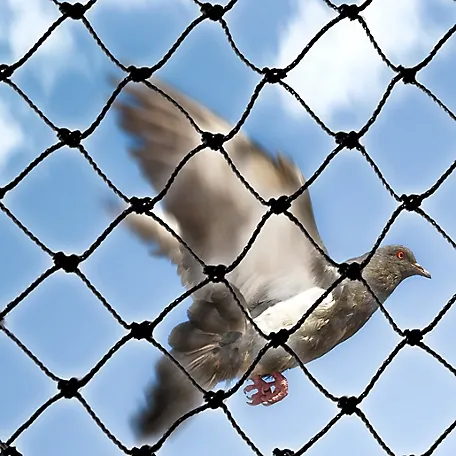-
 Afrikaans
Afrikaans -
 Albanian
Albanian -
 Amharic
Amharic -
 Arabic
Arabic -
 Armenian
Armenian -
 Azerbaijani
Azerbaijani -
 Basque
Basque -
 Belarusian
Belarusian -
 Bengali
Bengali -
 Bosnian
Bosnian -
 Bulgarian
Bulgarian -
 Catalan
Catalan -
 Cebuano
Cebuano -
 China
China -
 Corsican
Corsican -
 Croatian
Croatian -
 Czech
Czech -
 Danish
Danish -
 Dutch
Dutch -
 English
English -
 Esperanto
Esperanto -
 Estonian
Estonian -
 Finnish
Finnish -
 French
French -
 Frisian
Frisian -
 Galician
Galician -
 Georgian
Georgian -
 German
German -
 Greek
Greek -
 Gujarati
Gujarati -
 Haitian Creole
Haitian Creole -
 hausa
hausa -
 hawaiian
hawaiian -
 Hebrew
Hebrew -
 Hindi
Hindi -
 Miao
Miao -
 Hungarian
Hungarian -
 Icelandic
Icelandic -
 igbo
igbo -
 Indonesian
Indonesian -
 irish
irish -
 Italian
Italian -
 Japanese
Japanese -
 Javanese
Javanese -
 Kannada
Kannada -
 kazakh
kazakh -
 Khmer
Khmer -
 Rwandese
Rwandese -
 Korean
Korean -
 Kurdish
Kurdish -
 Kyrgyz
Kyrgyz -
 Lao
Lao -
 Latin
Latin -
 Latvian
Latvian -
 Lithuanian
Lithuanian -
 Luxembourgish
Luxembourgish -
 Macedonian
Macedonian -
 Malgashi
Malgashi -
 Malay
Malay -
 Malayalam
Malayalam -
 Maltese
Maltese -
 Maori
Maori -
 Marathi
Marathi -
 Mongolian
Mongolian -
 Myanmar
Myanmar -
 Nepali
Nepali -
 Norwegian
Norwegian -
 Norwegian
Norwegian -
 Occitan
Occitan -
 Pashto
Pashto -
 Persian
Persian -
 Polish
Polish -
 Portuguese
Portuguese -
 Punjabi
Punjabi -
 Romanian
Romanian -
 Russian
Russian -
 Samoan
Samoan -
 Scottish Gaelic
Scottish Gaelic -
 Serbian
Serbian -
 Sesotho
Sesotho -
 Shona
Shona -
 Sindhi
Sindhi -
 Sinhala
Sinhala -
 Slovak
Slovak -
 Slovenian
Slovenian -
 Somali
Somali -
 Spanish
Spanish -
 Sundanese
Sundanese -
 Swahili
Swahili -
 Swedish
Swedish -
 Tagalog
Tagalog -
 Tajik
Tajik -
 Tamil
Tamil -
 Tatar
Tatar -
 Telugu
Telugu -
 Thai
Thai -
 Turkish
Turkish -
 Turkmen
Turkmen -
 Ukrainian
Ukrainian -
 Urdu
Urdu -
 Uighur
Uighur -
 Uzbek
Uzbek -
 Vietnamese
Vietnamese -
 Welsh
Welsh -
 Bantu
Bantu -
 Yiddish
Yiddish -
 Yoruba
Yoruba -
 Zulu
Zulu
Jan . 09, 2025 11:50
Back to list
Agriculture Insect Netting Mesh HDPE Plastic UV Anti Insect Protection Proof Barrier Net
Agricultural insect netting is revolutionizing modern farming practices by offering a sustainable, eco-friendly alternative to traditional pest control methods. As the global demand for food security and environmentally conscious farming solutions grows, the role of insect netting in agriculture has never been more paramount. This article delves into the practical applications, scientific underpinnings, and the manifold benefits of using agricultural insect netting, establishing a resource that highlights its effectiveness through real-world experiences and expert insights.
Trust in insect netting also emanates from its sustainability and economic viability. While initial costs may appear high, the long-term savings on pesticides and benefits from improved yields often result in a favorable return on investment. Innovative adjustments such as solarization using transparent netting also contribute to soil health and enhanced germination rates. Farmers reflecting on their practices over successive growing seasons express a deepened appreciation for the reliability and protection offered by insect netting. As the agricultural sector continues to face challenges related to climate change and biodiversity, the adoption of sustainable practices such as insect netting will likely expand. Its capacity to foster resilience in cropping systems makes it an indispensable tool. As testified by countless experts and satisfied practitioners, this modern farming aid provides a convergence of innovation and tradition, presenting a promising path forward for agronomy. In conclusion, agricultural insect netting represents more than just a barrier against pests; it is a testament to the amalgamation of novel agricultural science with age-old farming wisdom. By embracing this technology, farmers worldwide can improve crop vitality, safeguard ecosystems, and support the growing demand for sustainably produced food. With insect netting, the future of agriculture is set on a course toward sustainability, responsibility, and prosperity.


Trust in insect netting also emanates from its sustainability and economic viability. While initial costs may appear high, the long-term savings on pesticides and benefits from improved yields often result in a favorable return on investment. Innovative adjustments such as solarization using transparent netting also contribute to soil health and enhanced germination rates. Farmers reflecting on their practices over successive growing seasons express a deepened appreciation for the reliability and protection offered by insect netting. As the agricultural sector continues to face challenges related to climate change and biodiversity, the adoption of sustainable practices such as insect netting will likely expand. Its capacity to foster resilience in cropping systems makes it an indispensable tool. As testified by countless experts and satisfied practitioners, this modern farming aid provides a convergence of innovation and tradition, presenting a promising path forward for agronomy. In conclusion, agricultural insect netting represents more than just a barrier against pests; it is a testament to the amalgamation of novel agricultural science with age-old farming wisdom. By embracing this technology, farmers worldwide can improve crop vitality, safeguard ecosystems, and support the growing demand for sustainably produced food. With insect netting, the future of agriculture is set on a course toward sustainability, responsibility, and prosperity.
Latest news
-
Shipping Plastic Bags for Every NeedNewsJul.24,2025
-
Safety Netting: Your Shield in ConstructionNewsJul.24,2025
-
Plastic Mesh Netting for Everyday UseNewsJul.24,2025
-
Nylon Netting for Every UseNewsJul.24,2025
-
Mesh Breeder Box for Fish TanksNewsJul.24,2025
-
Expanded Steel Mesh Offers Durable VersatilityNewsJul.24,2025











